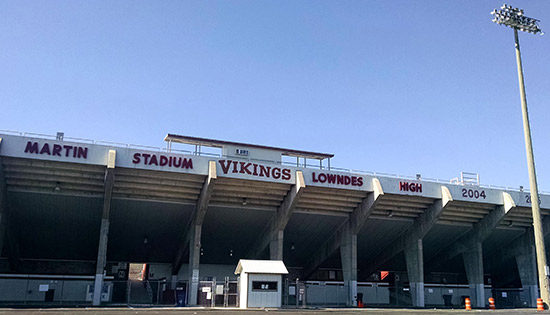Submission:
Column by Gary M. Wisenbaker
Back in 1958 William Burton parked his car in a parking facility owned and operated by the Wilmington (Delaware) Parking Authority. He thought it would be nice to grab a cup of coffee at the Eagle Coffee Shoppe, which leased space from the WPA.
But there was a problem, the Eagle refused to serve him. You see, Burton was black, and the coffee shop didn’t serve blacks back then. He did what he should have done: he sued both entities for violating his civil liberties and denying him equal protection of those rights guaranteed under the Fourteenth Amendment.
Although Eagle Coffee Shoppe was a private, commercial business, it leased its space from a governmental entity, the WPA. And since the government and Eagle mutually benefited from their commercial relationship and the WPA used public funds to build the garage and space, then Eagle was an extension of the state for constitutional protection purposes.
In the 1961 benchmark case “Burton vs Wilmington Parking Authority”, handed down by the US Supreme Court, the Court ruled that private actors could be held accountable for refusing to recognize a citizen’s constitutional rights. The vehicle used for this extension of constitutional protection is the concept of “state action”. The Burton Case was a highwater mark for the doctrine at the time.
“State action” has evolved so that today a lease agreement between a private entity and government may not be enough to turn the private entity into a “state actor”. The courts now look to a “close nexus” between the state and private actor. Facts giving rise to this could be “when the State provides significant encouragement, either overt or covert, or when a private actor operates as a willful participant in joint activity with the State or its agents.”
Now, consider the Internet.
The US Defense Advanced Research Projects Agency (DARPA), according to Vint Cerf initiated a project in 1973 “to investigate techniques and technologies for interlinking packet networks of various kinds.” The idea was to develop ways allowing “networked computers to communicate transparently across multiple, linked packet networks, thus the Internet was born.
Conceptualized and built largely with federal government, i.e. taxpayer, money and significant encouragement, the Internet is used widely by a plethora of federal, state, and local agencies and governments to help them govern. The IRS has a Facebook page, for example.
Simply put, with the revolution in how information is disseminated, the Internet rules. “Big Tech”, moreover, is the arbiter of what information is allowed. And they are abusing that position.
Since the installation of Joe Biden, the Socialist Democrats and their coterie in the mainstream media have consistently called for Facebook, Twitter, and other platforms to silence voices opposing their policies.
Facebook and Twitter, as part of that coterie, have eagerly complied by denying many conservative voices the right to speak and be heard, consider the banning of former President Donald Trump, for example. Big Tech even often denies the sharing of articles and information from sources they consider “suspect” of their socialist values.
These bannings and refusal to allow the free flow of conservative thought with the intent to silence them by refusing access to the service the Internet and Big Tech provide is clearly discrimination.
There can be no clearer “nexus” between Big Tech and the government. Their censorship is as undemocratic as it is reprehensible.
Hold them accountable.











